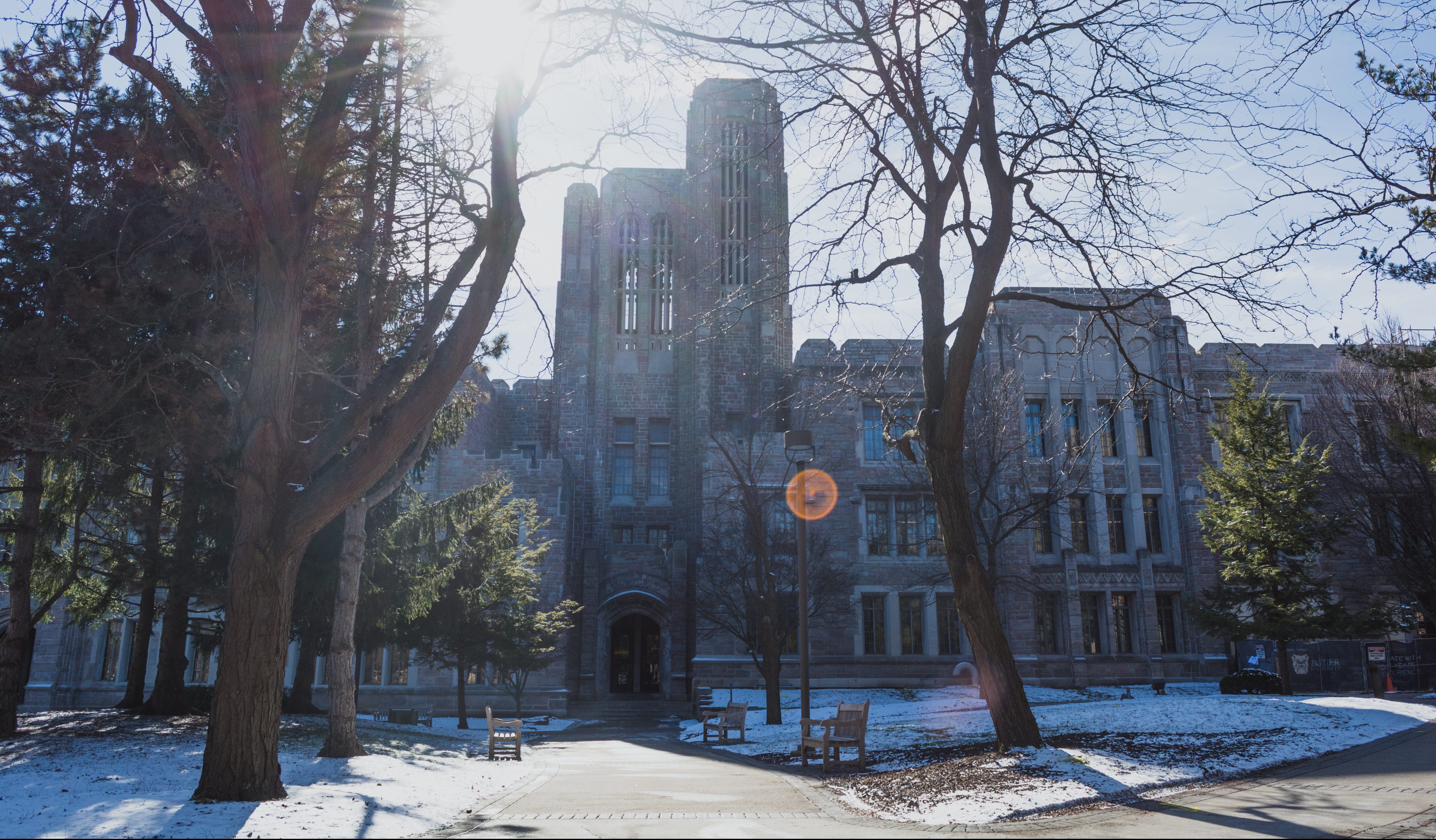Multiple faculty members have tested positive for COVID-19 over the last few months. Collegian file photo.
SOPHIA ESTES | STAFF REPORTER | sestes@butler.edu
Labored breathing, mental fogginess and horrible headaches are only a few symptoms experienced by those who have contracted COVID-19. For Terri Carney, a professor of Spanish, these were the worst to deal with. Carney and her husband both tested positive for COVID-19 in March 2020.
“I was in bed for a full two weeks,” Carney said. “He [Carney’s husband] recovered more rapidly, but we had these recurring symptoms. Like, you would think you were better and then suddenly four days later you would have a mild fever… the symptoms would just cycle… We quarantined for much longer than two weeks because we didn’t feel it was safe, personally, because we weren’t 100%.”
While COVID-19 remains a prevalent issue around the nation, students, faculty and staff on Butler University’s campus have been advised to continue following CDC guidelines and the mask mandate.
In Carney’s case, her husband works in the health sector, and he was able to get tested.
In regard to teaching while working through illness, Carney said she was thankful that the worst days of her sickness lined up with spring break.
“The good news is the whole week of spring break was my main week in bed with the terrible organ pains, the internal pains were incredible…that whole week I was in bed so I didn’t really need to do anything,” Carney said. “The second week I wrote to my class and luckily I had everything organized on Canvas already just for normal classes, so I just kept them up the second week, and by the time I was feeling better, I didn’t really miss that much of a beat.”
Although Carney was able to remain on top of her classes, there have been other faculty members who have not been able to do the same. Amanda Weiderman, a junior mechanical engineering and economics double major, said her advisor had COVID-19 at the beginning of the semester and has been unresponsive since.
“I kind of ran into a problem with one of my classes because I’m an engineering student, so I take classes through IUPUI, and I was having trouble on the IUPUI side…A week before classes started, I emailed her saying ‘hey, my classes aren’t working,’” Weiderman said. “I got one email from her, and then I didn’t hear from her for two weeks. And then I would get one email and not hear from her for two weeks. So I kind of got frustrated with it and contacted the director of my program…and he said ‘oh yeah, she has COVID.’”
Weiderman said her advisor sent out an email the week of Oct. 12 about advising, but that this was the first email that she and other advisees had received from her all semester.
“She handles everything,” Weiderman said. “So, for the one person that you can go to if you have an issue, to be out for that long… we were all very frustrated.”
Although Weiderman understands her advisor’s other responsibilities are important, she feels like her advisor’s university role is not getting the amount of attention it deserves. As for scheduling for this upcoming spring, Weiderman is not expecting much help.
“At this point, I’m prepared to just figure it out if I need to figure it out by myself because she obviously has not been dependable…,” Weiderman said. “It’s definitely been very frustrating, especially in the beginning because it was taking time out of my day every day to try and contact her, and all she had to do was send an email back. That’s all I needed. But she never did. So, it made everybody else’s life 10 times more difficult.”
Despite the challenges, professors and students are adapting to health and safety precautions. Hilary Buttrick, interim dean for the Lacy School of Business, said in an email to The Butler Collegian that she can see how hard everyone is working to get through this semester together.
“I’d say we all feel the same COVID fatigue that the rest of the country is feeling,” Buttrick said. “But by and large, students, faculty and staff have put forth an extraordinary effort to follow safety protocols such as social distancing, mask-wearing and hand-washing… I have seen faculty work hard to adapt their classes and find new ways to connect with students, and I have seen students adapt to new methods of teaching and learning.”
The professor and student relationship has been altered this semester, as everyone has to consider the potential dangers to their health. However, Carney explained that having COVID-19 before this semester started did not scare her away from returning in person.
“I think people who have had COVID have a little bit of this sense of — perhaps — false security that it’s very unlikely that we will get it again,” Carney said. “I felt like I needed to do in-person classes because, again, I’ve had it so I feel like I’m sort of safe. So I thought, it’s better to let other people do the online option and I’ll go ahead and do the face-to-face.”



